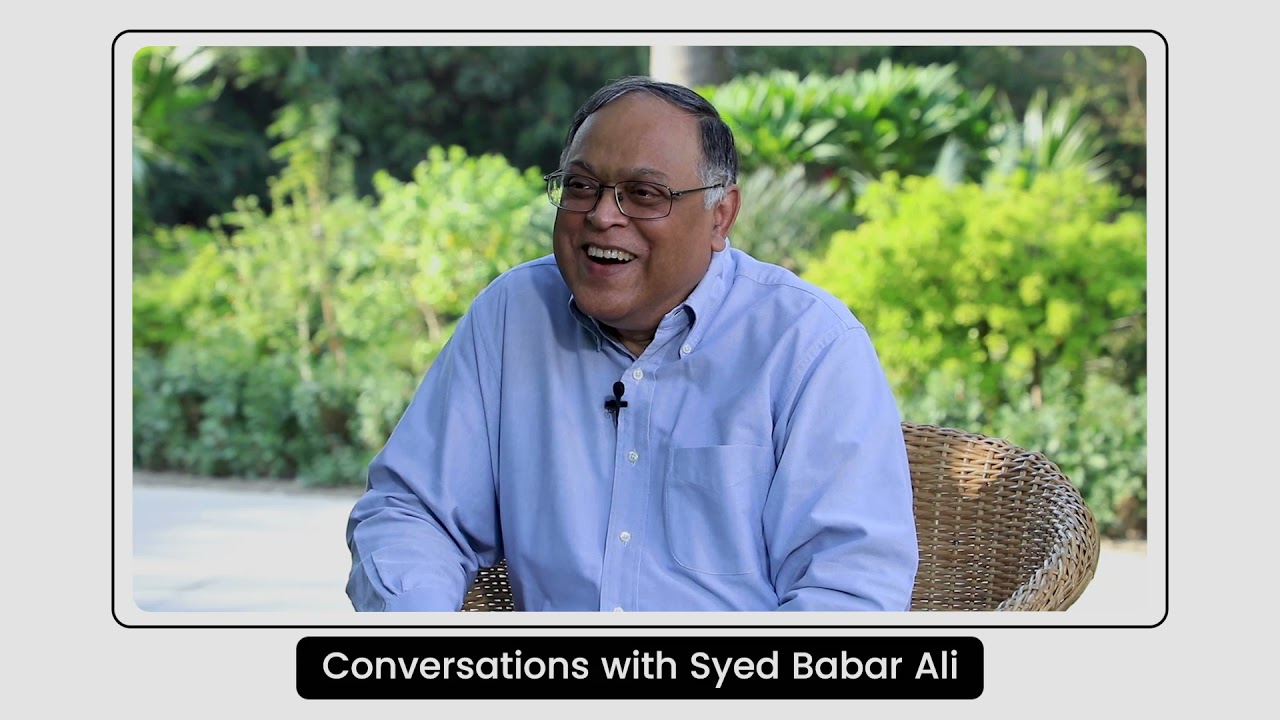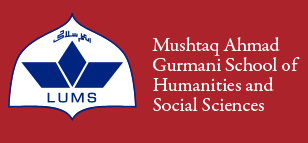Dr. Shoaib received his BDS from de’Montmorency College of Dentistry, Lahore in 2003. After completing the house job, he moved towards fundamental research and earned his M.Sc. in Molecular Oncology in 2006 and Ph.D. in Molecular Biology in 2011, both from the Gustave Roussy Cancer-Campus, University of Paris-Sud, France. Later, he joined the Centre for Research in Molecular Medicine (CRIMM) at The University of Lahore as Assistant Professor. In 2013, he received a postdoctoral fellowship from Villum Foundation, Denmark, and worked at the Biotech Research and Innovation Center (BRIC), University of Copenhagen, a global hub for research in genome stability and DNA repair. In 2018, Dr. Shoaib’s project received a large grant from Novo Nordisk Foundation and he was promoted to Assistant Professor at the University of Copenhagen, Denmark, where he worked until March 2021.
Dr. Shoaib joined the Department of Biology at Syed Babar Ali School of Science and Engineering in April 2021 as an Associate Professor and established Epigenome and Genome Integrity Lab (EaGIL). Dr. Shoaib specializes in chromatin biology and epigenetics and their interplay with genome maintenance pathways. During his Ph.D. and postdoctoral work, he developed and published several methodologies in molecular biology to better understand the chromatin-based mechanisms underlying the transformation of a normal cell into a cancerous cell. He helped established the Proteomics Core Facility at the Gustave Roussy Cancer Campus and single-handedly set up the quantitative mass spectrometry (MS)-based assays for protein post-translational modification analysis. During his stay at BRIC, he investigated the role of histone H4K20 methylation pathway in chromatin structure modulation and maintenance of genome integrity.
Dr. Shoaib aims to characterize chromatin-centered molecular pathways that govern key cellular processes including DNA replication, transcription, and DNA damage response. His work employs a combination of conventional molecular & cellular biology techniques, high-throughput genomics & proteomics technologies such as ChIPseq, RNAseq, ATAC-seq, and Mass Spec, etc., and bioinformatics analysis to decode the complex underpinnings of the aforementioned cellular processes. He is keen on integrating the high throughput biological data acquired from these methods to build next-generation multiscale in silico networks of epigenetic and DNA damage response factors. Using Systems Biology approaches, Dr. Shoaib’s lab annotates biomolecular networks with patient-specific mutations and gene expression data and develops next-generation precision cancer therapies.
| Title | Publication | Author | Year |
|---|---|---|---|
| Correction to: CanSeer: a translational methodology for developing personalized cancer models and therapeutics (Scientific Reports, (2025), 15, 1, (15080), 10.1038/s41598-025-99219-x) | Scientific Reports | Butt R.N., Amina B., Sultan M.U., Tanveer Z.B., Gondal M.N., Hussain R., Khan S., Akbar R., Nasir Z., Khalid M.F., Channan-Khan A.A., Faisal A., Shoaib M., Chaudhary S.U., | 2025 |
| CanSeer: a translational methodology for developing personalized cancer models and therapeutics | Scientific Reports | Butt R.N., Amina B., Sultan M.U., Tanveer Z.B., Gondal M.N., Hussain R., Khan S., Akbar R., Nasir Z., Khalid M.F., Channan-Khan A.A., Faisal A., Shoaib M., Chaudhary S.U., | 2025 |
| Lamin A/C impairments cause mitochondrial dysfunction by attenuating PGC1 and the NAMPT-NAD+ pathway | Nucleic Acids Research | Maynard S., Hall A., Galanos P., Rizza S., Yamamoto T., Gram H.H., Munk S.H.N., Shoaib M., Sorensen C.S., Bohr V.A., Lerdrup M., Maya-Mendoza A., Bartek J., | 2022 |
| Histone H4 lysine 20 mono-methylation directly facilitates chromatin openness and promotes transcription of housekeeping genes | Nature Communications | Shoaib M., Chen Q., Shi X., Nair N., Prasanna C., Yang R., Walter D., Frederiksen K.S., Einarsson H., Svensson J.P., Liu C.F., Ekwall K., Lerdrup M., Nordenskiold L., Sorensen C.S., | 2021 |
| Chromatin Landscaping At Mitotic Exit Orchestrates Genome Function | Frontiers in Genetics | Shoaib M., Nair N., Sorensen C.S., | 2020 |
| Deleterious variants in WNT10A, EDAR, and EDA causing isolated and syndromic tooth agenesis: A structural perspective from molecular dynamics simulations | International Journal of Molecular Sciences | Parveen A., Khan S.A., Mirza M.U., Bashir H., Arshad F., Iqbal M., Ahmad W., Wahab A., Fiaz A., Naz S., Ashraf F., Mobeen T., Aziz S., Ahmed S.S., Muhammad N., Hassib N.F., Mostafa M.I., Gaboon N.E., Gul R., Khan S., Froeyen M., Shoaib M., Wasif N., | 2019 |
| SPECTRUM - A MATLAB Toolbox for Proteoform Identification from Top-Down Proteomics Data | Scientific Reports | Basharat A.R., Iman K., Khalid M.F., Anwar Z., Hussain R., Kabir H.G., Tahreem M., Shahid A., Humayun M., Hayat H.A., Mustafa M., Shoaib M.A., Ullah Z., Zarina S., Ahmed S., Uddin E., Hamera S., Ahmad F., Chaudhary S.U., | 2019 |
| Topokaryotyping demonstrates single cell variability and stress dependent variations in nuclear envelope associated domains | Nucleic Acids Research | Jurisic A., Robin C., Tarlykov P., Siggens L., Schoell B., Jauch A., Ekwall K., Sorensen C.S., Lipinski M., Shoaib M., Ogryzko V., | 2018 |
| Histone H4K20 methylation mediated chromatin compaction threshold ensures genome integrity by limiting DNA replication licensing | Nature Communications | Shoaib M., Walter D., Gillespie P.J., Izard F., Fahrenkrog B., Lleres D., Lerdrup M., Johansen J.V., Hansen K., Julien E., Blow J.J., Sorensen C.S., | 2018 |
| Small Ubiquitin-Like Modifier Protein 3 Enhances the Solubilization of Human Bone Morphogenetic Protein 2 in E. coli | Applied Biochemistry and Biotechnology | Hanif M.U., Yaseen A., Gul R., Mirza M.U., Nawaz M.H., Ahmed S.S., Aziz S., Chaudhary S., Khan A.A., Shoaib M., | 2018 |
| Redox imbalance correlates with high Nugent score in bacterial vaginosis | Journal of Obstetrics and Gynaecology Research | Waqqar S., Aziz S., Shakeel R., Waheed A., Ahmed S.S., Ali A., Khan A.A., Shoaib M., | 2018 |
| Chromatin dynamics in genome stability: Roles in suppressing endogenous DNA damage and facilitating DNA repair | International Journal of Molecular Sciences | Nair N., Shoaib M., Sorensen C.S., | 2017 |
| Epigenetic Deficiencies and Replicative Stress: Driving Cancer Cells to an Early Grave | Cancer Cell | Shoaib M., Sorensen C.S., | 2015 |
| Salivary immunosuppressive cytokines IL-10 and IL-13 are significantly elevated in oral squamous cell carcinoma patients | Cancer Investigation | Aziz S., Ahmed S.S., Ali A., Khan F.A., Zulfiqar G., Iqbal J., Khan A.A., Shoaib M., | 2015 |
| PUB-NChIP-"in vivo biotinylation" approach to study chromatin in proximity to a protein of interest | Genome Research | Shoaib M., Kulyyassov A., Robin C., Winczura K., Tarlykov P., Despas E., Kannouche P., Ramanculov E., Lipinski M., Ogryzko V., | 2013 |
| PUB-MS: A mass spectrometry-based method to monitor protein-protein proximity in vivo | Journal of Proteome Research | Kulyyassov A., Shoaib M., Pichugin A., Kannouche P., Ramanculov E., Lipinski M., Ogryzko V., | 2011 |
| Use of in vivo biotinylation for chromatin immunoprecipitation | Current Protocols in Cell Biology | Kulyyassov A., Shoaib M., Ogryzko V., | 2011 |
| Multiple displacement amplification for complex mixtures of DNA fragments | BMC Genomics | Shoaib M., Baconnais S., Mechold U., Le Cam E., Lipinski M., Ogryzko V., | 2008 |



